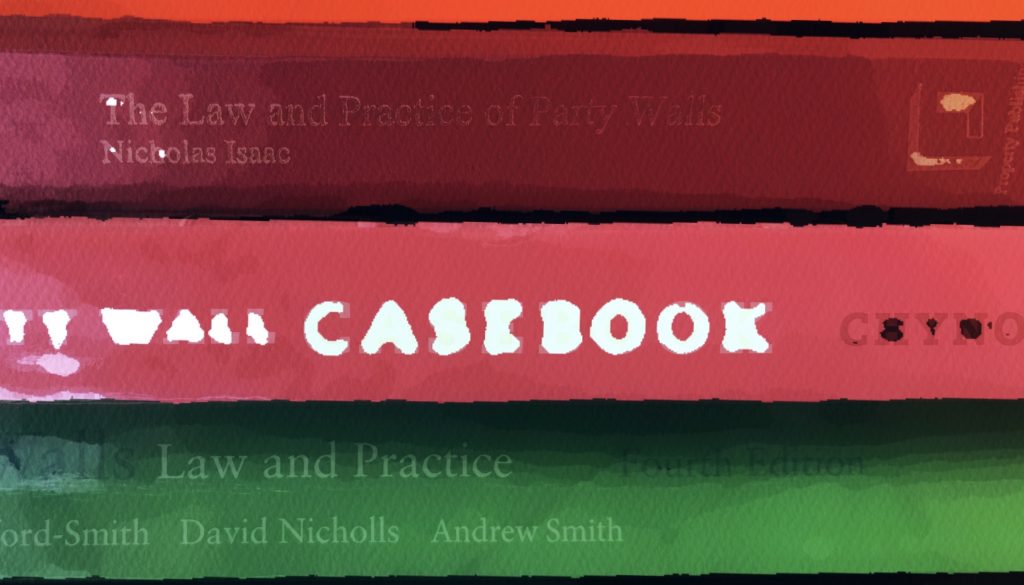Longmire v Maldura (Unreported, 29 January 2015) Central London County Court
Click here for the transcript.
Summary: Surveyors appointed under the 1996 Act hold a quasi-judicial function. The appointed surveyors cannot delegate that quasi-judicial function to others – even to assistants in their practice. The appointed surveyor must sign the award. Where the appointed surveyor signs an award there arises a strong presumption that he has properly conducted himself and that the award is genuinely his (and not that of an assistant who may have assisted the appointed surveyor with some aspects of his function). That presumption may be rebutted, but very cogent evidence will be required.
Court: This is a decision of HHJ Bailey at the Central London County Court. It is not, therefore, binding on other county courts, but it is a reasoned decision, based on earlier High Court and Court of Appeal authority, by the sole full-time TCC Judge at Central London County Court. It is therefore considered that it would be regarded by other Circuit Judges as highly persuasive.
Facts: A notice in accordance with section 3 of the 1996 Act was served on, amongst others, Mr and Mrs Longmire. A dispute was deemed to have arisen between them and the building owner and surveyors were appointed. By a letter dated 18 March 2014, Mr and Mrs Longmire appointed Mr John Gillies of Johnson Gillies. An award was eventually served on 15 July 2014. That award was not signed by Mr John Gillies, but by his son, Mr Jonathan Gillies, a surveyor who worked in his father’s practice. Mr and Mrs Longmire considered that, as the award had not been signed by their appointed surveyor, it was invalid. Initially, Mr Jonathan Gillies maintained that the award was valid but, on Thursday 31 July 2014, Gillies Senior and Junior concluded that Mr and Mrs Longmire might be right. Accordingly, on Monday 4 August 2014, Mr John Gillies signed a republished award that was in identical form to that served on 15 July 2014, and that republished award was served by letter dated 5 August 2015. Mr and Mrs Longmire appealed that the award dated 4 August 2015 was invalid because it was not truly the award of their appointed surveyor; they argued that their appointed surveyor had simply put his signature to an award made, in substance, by his son.
Decision: HHJ Bailey referred to the well-known case of Gyle Thompson v Wall Street (Properties) Ltd [1974] 1 WLR 123 (HC), in which it was pointed out that party wall surveyors are in a quasi-judicial position, exercising statutory powers and responsibilities. He then referred to the Court of Appeal in Barnard v National Dock Labour Board [1953] 2 QB 18 (CA) as authority for the proposition that an exerciser of a quasi-judicial function may not delegate it. The Judge was therefore quite clear that the first award, served on 15 July 2014, had not been valid. Further, if a quasi-judicial function may not be delegated the exerciser of a quasi-judicial function may not simply ratify the act of another who had undertaken that function. Accordingly, if Mr John Gillies had simply applied his signature to an award that, in substance, had been made by his son, the award dated 4 August 2014 would also have been invalid. However, he held that:
“where a properly appointed party wall surveyor has issued and signed an award as being his award, it is to be presumed that he has properly conducted himself and that the award he has signed is genuinely his award. That can, however, only be a presumption, although I am bound to say it is likely to be a strong presumption. It is nevertheless open either to the appointing owner or indeed the other owner, for it is to be borne in mind that each of the two surveyors appointed to act in regard to the party wall award acts in relation to both owners, to seek to rebut the presumption and show that, on the particular facts of the individual case, it is not truly the surveyor’s award and he has not conducted himself as required by the Act.”
On the facts of this case, Counsel for the Building Owner (Nick Isaac of Tanfield Chambers) was able to show that Mr John Gillies had been personally involved at important points along the process of negotiation and consideration of the award between the surveyors. Accordingly, whilst the Judge expressed sympathy with Mr and Mrs Longmire’s concerns, he considered that they had not discharged the “heavy onus” of showing that their appointed surveyor had not validly issued the award on 4 August 2014.
Discussion: This case serves as a reminder of the quasi-judicial position occupied by party-wall surveyors. In a busy practice, it might be tempting from time to time to delegate tasks to assistants. That is permissible but only provided that, in doing so, an appointed surveyor does not delegate to the extent that the judgment being applied to the award is that of the assistant(s) rather than the appointed surveyor.
As an aside, readers will be amused to note that Counsel for Mr and Mrs Longmire submitted that the award dated Monday 4 August 2014 could not genuinely have been an award made by Mr Gillies Senior because he only concluded that the award of July 2014 was invalid on Thursday 31 July, and “Weekends were a time when professional men did not work”! HHJ Bailey mused, “That is a submission that has to be treated with caution.”
